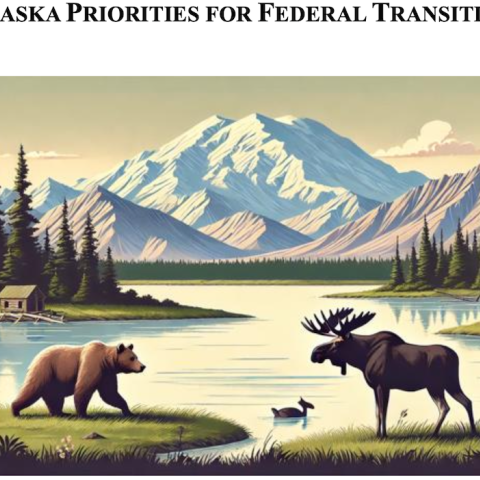
The National Park Service went too far interpreting how a U.S. Supreme Court ruling should be applied in Alaska, according to the Coalition to Protect America's National Parks/NPS file
A decision by the National Park Service to drop a regulation against the use of hovercrafts on part of the Nation River in Yukon-Charley Rivers National Preserve, and to do the same elsewhere in national park properties in Alaska, went too far, according to the Coalition to Protect America's National Parks.
According to the Coalition, the Park Service went far beyond a precedent set in Sturgeon v. Frost, a case in which the Supreme Court held that the agency could not enforce a system-wide regulation prohibiting the operation of a hovercraft on part of the Nation River that flows through the Yukon-Charley Rivers.
While the Supreme Court ruling was specific to the Nation River in the preserve, the recent NPS rule expands the application of the ruling to over 2,000 water bodies in Alaska’s national parks, preserve, and monuments under NPS jurisdiction in Alaska, which total 56 million acres, or near 60 percent of NPS lands nationally, the Coalition said in a release.
“There is well-documented and longstanding disagreement between state and federal agencies in Alaska regarding what constitutes ‘navigability’ for determining title to submerged lands in federally managed areas,” said Phil Francis, chair of the Coalition. “For determining such ownership, there is a Congressionally mandated process under 43 U.S.C. § 1745 for resolving state claims of ownership of submerged lands under navigable waters on federal lands; and well-established court precedents for determining if a water body is navigable for ownership purposes.
“By not acknowledging the fundamental question of navigability for ownership purposes in the rulemaking, NPS appears to be making a blanket concession that the state has jurisdiction over thousands of miles of rivers and streams within National Park System units in Alaska," added Francis. "It would have been simple enough for the Park Service to make clear that the new rule applies only to submerged lands in Alaska where state ownership has been confirmed in accordance with 43 U.S.C. § 1745 and applicable court decisions."
According to the Coalition official, "the rule was obviously prepared by individuals with no practical experience managing parks, monuments, and preserves in Alaska. Because rivers and streams function as roads and trails in many national park units in Alaska, the broad brush approach of the final rule will likely complicate and undermine NPS’s ability to manage a host of recreational and commercial activities occurring on park lands under NPS jurisdiction in Alaska.”


 Support Essential Coverage of Essential Places
Support Essential Coverage of Essential Places







Add comment